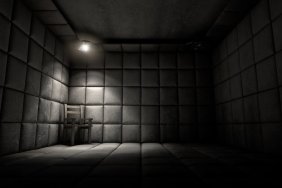Noah Fuller, Eugenics Record Office
Founded by artist/curator Maddy Rosenberg, Central Booking sits at the south end of Ludlow Street in New York; dedicated to a dialogue where art and science meet, Rosenberg takes on the subject of eugenics for her new exhibition, “Twisted Data,” now on view through January 24, 2016.
Eugenics first captured the imagination of Philadelphia gynecologist William Goodell, who advocated for the castration and spaying of the insane in the mid-nineteenth century. But it was Sir Francis Galton, Charles Darwin’s half cousin who brought eugenics to the forefront of the British intelligentsia , coining the very term itself in 1883, promoting the belief that science could establish a system of practices designed to improve the genetic quality of the human population.

Noah Fuller, Eugenics Record
Germinating in Victorian England during what the height of it’s purity campaigns, eugenics has come to stand for the very essence of white pathology itself, revealing the widespread embrace within the highest levels of political, medical, and scientific communities. By the turn of the century, eugenics was in full vogue, capturing the attention of everyone from Winston Churchill and Margaret Sanger to Adolf Hitler by appealing to the radical extremist ideals of a white populace in search of racial purification. After World War II, some countries abandoned eugenics practices while others continued in earnest, with forced sterilization occurring in several countries.
With the creation of “Twisted Data,” Rosenberg spotlights the dark side of Anglo Saxon Eurocentric thinking that is so pervasive in our culture today. Rosenberg observes, “You always need a scapegoat. They offer an easy solution and give you someone to blame. The emotional hysteria surrounding tragedy becomes incorporated into policy, and the rhetoric being used to day is exactly the same rhetoric they were using in the past, whether it’s the first Gulf War, Vietnam, or World War II. But when you stop the hysteria to examine the fact, you find out it doesn’t stand up to examination.”

Courtesy of the American Philosophical Society
Featuring works by Brandstifter, Charley Friedman, Noah Fuller and John Kuo Wei Tchen, Bram Harris, Todd Herman, Patricia Olynyk, Geraldine Ondrizek, Jeffrey Allen Price, Barbara Rosenthal, Rosary Solimanto, Sarah Stengle, and Melissa Stern, “Twisted Data” gives us a quiet and powerful way of considering the “science” of criminology and its implications. Who is profiting off the system—and what price is being paid to maintain it?
We cannot ever know the full impact of the scope of a fraud perpetrated upon the American people in the form of the Eugenics Record Office (ERO). Established in 1910 by Mrs. E.H. Harriman in Cold Spring Harbor, NY. Mrs. Harriman, the widow of a railroad baron, donated $10,000 to establish the ERO, amassing hundreds of thousands of family pedigrees, case studies, and indexed records. The ERO sponsored summer courses to train aspiring eugenics caseworkers and actively lobbied for the passage of state sterilization and national immigration restriction. During the 1920s-30s, evidence of misuse of the data and serious flaws were discovered and the office was officially closed in 1939.

Barbara Rosenthal, Evidence Of Personality, Phrenology, Palmistry
For “Twisted Data”, artist Noah Fuller has recreated a section of the ERO, providing us with an eerie look of true banality of evil in one of its most immoral and deceptive forms. Recreating the 1920s office with an oak table, forms, and reports, Fuller easily engages our curiosity by revealing the obsessive-compulsive nature of eugenics. By rendering it as an installation, Fuller reaffirms the fact of the EOR’s very existence, reminding us that the tools of racial oppression have always been hidden in plain sight in the United States.
As Rosenberg observes, “The dissemination of misinformation laid the groundwork both for a justification for such ‘cleansing’ on a grand scale and for continued wrongheaded discourse and policies in the Western world. It pervaded the laws and the culture— and created myths of immigrants that remain difficult to dispel to this day. People have corrupted the dialogue and put lies in its place. You put something out there enough times and people begin to believe that it is true.”
“Twisted Data” is on view at Central Booking now through January 24, 2016.
Miss Rosen is a New York-based writer, curator, and brand strategist. There is nothing she adores so much as photography and books. A small part of her wishes she had a proper library, like in the game of Clue. Then she could blaze and write soliloquies to her in and out of print loves.

![Who Is [Spoiler's] Killer on General Hospital?](https://www.mandatory.com/wp-content/uploads/sites/10/2024/12/General-Hospital-Sonny-Dex-Mandatory.jpg?w=182&h=122&crop=1)






